#women poets of china
Text
The moonlight flows like water.
All the world is still.
from “To the tune “Intoxicated with Shadows of Flowers”” by Yü Ch’ing-tsêng (tr. Kenneth Rexroth and Ling Chung), in Women Poets of China
7 notes
·
View notes
Text
from chanellemwrites
“women poets of china”
#poetry#old poetry#poetry compilation#poetry collection#poetry therapy#chinese poetry#chinese poets#women poets#women poets of china#ling chung#kenneth rexroth#women writers#women artists#ancient china#chinese writing#writers and poets#poetscommunity#poems#poetess#poemsworld#poems on tumblr#poemsoftheday#sad poems#love poems#poets corner#poetsandwriters#aesthetic#poets aesthetic#poetry aesthetic#light acadamia aesthetic
7 notes
·
View notes
Text
[Hanfu · 漢服]The relationship between women in history is not just love rivals,
“but also thousands of years later, everyone knows that it is me and you.”
Let's get to know about them/她们 in China history.
1.【Han Dynasty】:Princess Jieyou (解忧公主) & Feng Liao (馮嫽)
Princess Jieyou (Chinese: 解忧公主; 121 BC – 49 BC), born Liu Jieyou (Chinese: 刘解忧), was a Chinese princess sent to marry the leader of the Wusun kingdom as part of the Western Han Chinese policy of heqin(和亲).
As the granddaughter of the disgraced Prince Liu Wu (劉戊) who had taken part in the disastrous Rebellion of the Seven States,her status was low enough that she was sent to replace Princess Liu Xijun (劉細君) after her untimely death and marry the Wusun king Cunzhou (岑陬).
Jieyou lived among the Wusun for fifty years and did much work to foster relations between the surrounding kingdoms and the Han. She was particularly reliant upon her attendant, Feng Liao, whom she dispatched as an emissary to Wusun kingdoms and even to the Han Court. She faced opposition from pro-Xiongnu members of the Wusun royalty, particularly Wengguimi’s Xiongnu wife. When word came that the Xiongnu planned to attack Wusun, she convinced her husband to send for aid from the Han Emperor. Emperor Wu of Han sent 150,000 cavalrymen to support the Wusun forces and drive back the Xiongnu.
In 51 BCE at the age of 70, Jieyou asked to be allowed to retire and return to the Han. Emperor Xuan of Han agreed and had her escorted back to Chang'an where she was welcomed with honor. She was given a grand palace with servants usually reserved for princesses of the imperial family. In 49 BCE, Jieyou died peacefully.
Feng Liao (馮嫽)
Feng Liao (馮嫽) was China's first official female diplomat,[citation needed] who represented the Han dynasty to Wusun (烏孫), which was in the Western Regions. It was a practice for the Imperial Court to foster alliances with the northern tribes via marriage, and two Han princesses had married Wusun kings.
Feng Liao was the maidservant of Princess Jieyou (解憂公主), who was married off to a Wusun king. Feng herself later married an influential Wusun general, whose good standing with Prince Wujiutu (烏就屠) of the kingdom later proved beneficial to the Han dynasty.
When Prince Wujiutu seized the throne of Wusun in 64 BC, after his father died, there was fear in the Imperial Court of Han that Wujiutu, whose mother was Xiongnu, would allow Wusun to become Xiongnu's vassal.
Zheng Ji, Governor of the Western Regions, recalled that Feng Liao had married into Wusun and with her familiarity of the Wusun customs, she was a prime candidate to persuade Wujiutu to ally his kingdom with Han. Wujiutu acceded and Emperor Xuan of Han (漢宣帝) sent for Feng. He praised her for her judgement and diplomacy, and appointed her as the official envoy to Wusun.
Wujiutu was conferred the title "Little King of Wusun" while his brother, the son by a Han princess, was named "Great King of Wusun". Wusun was divided between the two kings and tensions in that region were eased.
※Xiongnu: Xiongnu: A nomadic tribe that has occupied northern China for a long time. Later it gradually became a state. It harassed the borders of the Han Dynasty for a long time and robbed supplies.
------
With their efforts, the Wusun Kingdom gradually tended to support the Han Dynasty, and the Xiongnu's defeat in China also began.
------
2.【Tang Dynasty】:Shangguan Wan'er(上官婉儿)&Princess Taiping (太平公主)
Shangguan Wan'er/上官婉儿 (664 – 21 July 710) was a Chinese politician, poet, and imperial consort of the Wu Zhou and Tang dynasties. Described as a "female prime minister,"Shangguan rose from modest origins as a palace servant to become secretary and leading advisor to Empress Wu Zetian of Zhou. Under Empress Wu, Shangguan exercised responsibility for drafting imperial edicts and earned approbation for her writing style. She retained her influence as consort to Wu's son and successor, Emperor Zhongzong of Tang, holding the imperial consort rank of Zhaorong (昭容). Shangguan was also highly esteemed for her talent as a poet.Shangguan was also highly esteemed for her talent as a poet. In 710, after Emperor Zhongzong's death, Shangguan was killed during a palace coup that ended the regency of Empress Dowager Wei.
Princess Taiping (太平公主)lit. "Princess of Great Peace", personal name unknown, possibly Li Lingyue (李令月) (after 662 – 2 August 713) was a royal princess and prominent political figure of the Tang dynasty and her mother Wu Zetian's Zhou dynasty. She was the youngest daughter of Wu Zetian and Emperor Gaozong and was influential during the reigns of her mother and her elder brothers Emperor Zhongzong and Emperor Ruizong (both of whom reigned twice), particularly during Emperor Ruizong's second reign, when for three years until her death, she was the real power behind the throne.
She is the most famous and influential princess of the Tang dynasty and possibly in the whole history of China thanks to her power, ability and ambition. She was involved in political difficulties and developments during the reigns of her mother and brothers. Indeed, after the coup against Empress Dowager Wei, she became the real ruler of Tang. During the reign of Emperor Ruizong, she was not restricted by anything, the emperor issued rulings based on her views and the courtiers and the military flattered her and majority from every civil and military class joined her faction, so her power exceeded that of the emperor.
Eventually, however, a rivalry developed between her and her nephew, Emperor Ruizong's son, Crown Prince Li Longji. Both of them were hostile in power-sharing and they fought for the monopoly over power. After Emperor Ruizong yielded the throne to Li Longji (as Emperor Xuanzong) in 712, the conflict came to the political forefront, and openly, the court became a manifestation of conspiracy rather than the administration of the empire; in 713, Emperor Xuanzong, according to historical records, believing that she was planning to overthrow him, acted first, executing a large number of her powerful allies and forcing her to commit suicide.
------
The relationship between Shangguan Wan'er and Princess Taiping has always been written as "enemies" in official history, but with the phrase "千年万岁,椒花颂声", their friendship that has been buried for thousands of years was revealed.
The"千年万岁,椒花颂声" sentence comes from the epitaph written by Princess Taiping for Shangguan Wan'er. The original text is: "潇湘水断,宛委山倾,珠沉圆折,玉碎连城。甫瞻松槚,静听坟茔,千年万岁,椒花颂声”
Translation: Now that you are far away, the sky and the earth will lose their color. I'm afraid that all I can do in the future is to sit and look at the tea tree in front of your tomb. Maybe I can hear your voice again when I stand within an inch of the tomb. But this is a delusion after all, a quiet tomb, no beautiful face, a empty place of death. I hope that in a thousand or ten thousand years, there will still be people like me who remember you.
------
3.【Late Qing Dynasty】:Lü Bicheng(呂碧城) & Qiu Jin (秋瑾)
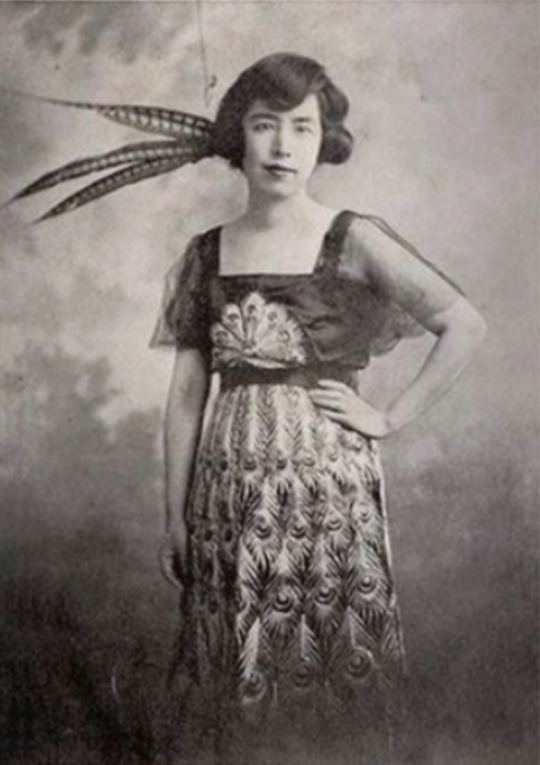
Lü Bicheng(呂碧城)also known as Alice Pichen Lee(1883–1943) was a Chinese writer, activist, newspaper editor, poet and school founder. She has been mentioned as one of the top four women in literature from the early Republic of China.
When she was four, her father retired to Lu'an, Anhui. She lived a life of comfort until the age of 12, when her father died in 1895. Because Lü Fengqi had no male heir, relatives of the Lü lineage contested for his inheritance, and Yan Shiyu and her four daughters were forced to move to Lai'an County to live with her natal family. When she was nine, Lü Bicheng was betrothed to a Wang family, but as her own family fortune declined, the Wang family broke off the marriage contract, giving the young Bicheng the stigma of a "rejected woman". The resulting emotional scar is often considered a major factor in her later decision to never marry.[8] Her widowed mother and the Lü girls were not well treated at the Yan family in rural Anhui. When Lü was 15 or 16, Yan Shiyu sent her to live with her maternal uncle Yan Langxuan (嚴朗軒), who was the salt administrator in Tanggu, the port city outside the northern metropolis of Tianjin. Her sister Huiru also joined her later.
During her stay in Tanggu, Qing China went through the tumultuous period of the failed Hundred Days' Reform of 1898, which brought about increasing awareness of women's education, and the Boxer Rebellion of 1900. In 1904, Mrs. Fang, the wife of her uncle's secretary, invited Lü Bicheng to visit a girls' school in Tianjin, but her uncle prevented her from going and severely reprimanded her. The next day, she ran away from her uncle's home, and took the train to Tianjin with no money or luggage. She wrote a letter to Mrs. Fang, who was staying at the dormitory of the Ta Kung Pao newspaper. Ying Lianzhi, the Catholic Manchu nobleman who founded the newspaper, read the letter and was so impressed by it that he made her an assistant editor. Lü Bicheng wrote a "progressive" ci that she had previously written, set to "A River Full of Red" ("Manjianghong") usually used to express heroic emotions. Ying transcribed the whole song in her diary and published it in L'impartial two days later. At the time, it was sensational for a woman to write for an influential national newspaper such as Ta Kung Pao. She was 21 years old. She used Ta Kung Pao to promote feminism and became a well-known figure.
Lü's ci poetry was published in the newspaper and it was very well received. She was the chief editor of the newspaper from 1904 to 1908. In 1904 she decided to improve education for girls. She had published her thoughts on women's rights and the general editor of the newspaper introduced her to Yan Fu who was an advocate for Western ideas. The Beiyang Women's Normal School was established that same year. At 23 Lü took on the job of principal of the school she had founded two years before. At first this school found it difficult to find girls who qualified for secondary education and students were brought in from Shanghai to make up the numbers.
Lü knew the revolutionary Qiu Jin and they had similar objectives but Lü did not join her in Japan when she was invited as she was unsure whether women should meddle in politics. She was then chosen to be secretary to Yuan Shikai, one of the most powerful people in China. When he set out to declare himself emperor of China she left, like many of his followers, and abandoned him.
--

Qiu Jin (秋瑾)8 November 1875 – 15 July 1907,was a Chinese revolutionary, feminist, and writer.Her sobriquet name is Jianhu Nüxia (Chinese: 鑑湖女俠 lit. 'Woman Knight of Mirror Lake').
Qiu was born into a wealthy family. Her grandfather worked in the Xiamen city government and was responsible for the city's defense. Zhejiang province was famous for female education, and Qiu Jin had support from her family when she was young to pursue her educational interests. Her father, Qiu Shounan, was a government official and her mother came from a distinguished literati-official family. Qiu Jin's wealthy and educated background, along with her early exposure to political ideologies were key factors in her transformation to becoming a female pioneer for the woman's liberation movement and the republican revolution in China.
In the early 1900s, Japan had started to experience western influences earlier than China. As to not fall behind, the Qing government sent many elites to learn from the Japanese. Qiu Jin was one of these elites that got the chance to study overseas. After studying in a women's school in Japan, Qiu returned to China to participate in a variety of revolutionary activities; and through her involvement with these activities, it became clear how Qiu wanted others to perceive her. Qiu called herself 'Female Knight-Errant of Jian Lake' — the role of the knight-errant, established in the Han dynasty, was a prototypically male figure known for swordsmanship, bravery, faithfulness, and self-sacrifice — and 'Vying for Heroism'
Qiu Jin had her feet bound and began writing poetry at an early age. With the support from her family, Qiu Jin also learned how to ride a horse, use a sword, and drink wine—activities that usually only men were permitted to learn at the time.In 1896 Qiu Jin got married. At the time she was only 21, which was considered late for a woman of that time. Qiu Jin's father arranged her marriage to Wang Tingchun, the youngest son of a wealthy merchant in Hunan province. Qiu Jin did not get along well with her husband, as her husband only cared about enjoying himself.While in an unhappy marriage, Qiu came into contact with new ideas. The failure of her marriage affected her decisions later on, including choosing to study in Japan.
While still in Tokyo, Qiu single-handedly edited a journal, Vernacular Journal (Baihua Bao). A number of issues were published using vernacular Chinese as a medium of revolutionary propaganda. In one issue, Qiu wrote A Respectful Proclamation to China's 200 Million Women Comrades, a manifesto within which she lamented the problems caused by bound feet and oppressive marriages. Having suffered from both ordeals herself, Qiu explained her experience in the manifesto and received an overwhelmingly sympathetic response from her readers. Also outlined in the manifesto was Qiu's belief that a better future for women lay under a Western-type government instead of the Qing government that was in power at the time. She joined forces with her cousin Xu Xilin and together they worked to unite many secret revolutionary societies to work together for the overthrow of the Qing dynasty.
Between 1905 and 1907, Qiu Jin was also writing a novel called Stones of the Jingwei Bird in traditional ballad form, a type of literature often composed by women for women audiences. The novel describes the relationship between five wealthy women who decide to flee their families and the arranged marriages awaiting them in order to study and join revolutionary activities in Tokyo. Titles for the later uncompleted chapters suggest that the women will go on to talk about “education, manufacturing, military activities, speechmaking, and direct political action, eventually overthrowing the Qing dynasty and establishing a republic” — all of which were subject matters that Qiu either participated in or advocated for.
Life after returning to China
Qiu Jin was known as an eloquent orator who spoke out for women's rights, such as the freedom to marry, freedom of education, and abolishment of the practice of foot binding. In 1906 she founded China Women's News (Zhongguo nü bao), a radical women's journal with another female poet, Xu Zihua in Shanghai. They published only two issues before it was closed by the authorities. In 1907, she became head of the Datong school in Shaoxing, ostensibly a school for sport teachers, but really intended for the military training of revolutionaries[citation needed]. While teaching in Datong school, she kept secret connection with local underground organization—The Restoration Society. This organization aimed to overthrow the Manchu government and restore Chinese rule.
Death
In 1907, Xu Xilin, Qiu’s friend and the Datong school’s co-founder was executed for attempting to assassinate his Manchu superior. In the same year, the authorities arrested Qiu at the school for girls where she was the principal. She was tortured but refused to admit her involvement in the plot. Instead the authorities used her own writings as incrimination against her and, a few days later, she was publicly beheaded in her home village, Shanyin, at the age of 31. Her last written words, her death poem, uses the literal meaning of her name, Autumn Gem, to lament of the failed revolution that she would never see take place:
秋風秋雨愁煞人
(Autumn wind, autumn rain — they make one die of sorrow)
After Qiu Jin was killed, no one dared to collect her body. Lu Bicheng endured her grief and took great risks to bury her friend. The guarding Qing army learned that the woman who came to collect the corpse was Lu Bicheng, who was famous in China, and they had no choice but to do anything.
Qiu Jin's death caused Lu Bicheng to lose a rare confidant in life. She wrote many poems in memory of Qiu Jin, recalling this like-minded friend.
Later, Lü Bicheng wrote "The Biography of the Revolutionary Heroine Qiu Jin" in English, which was published in newspapers in New York, Chicago and other places in the United States. It caused a great response and not only made many people in the world know about Qiu Jin's legendary story, but also published it in newspapers in New York and Chicago. It also makes people understand the darkness and corrupt social status quo of the Qing Dynasty. Lu Bicheng used a pen of her own to record her friendship with Qiu Jin, and also fulfilled her promise to Qiu Jin to respond with the "battle of words"
————————
📸Video & 🧚🏻 Model:@荷里寒 & @阿时Ashi_
🔗Weibo:https://weibo.com/3618951560/NEZZnpQRq
————————
#chinese hanfu#china history#woman power#woman in history#hanfu#hanfu accessories#hanfu_challenge#chinese traditional clothing#china#chinese#han dynasty#tang dynasty#late qing dynasty#feminism#revolution#漢服#汉服#中華風#girl power#hanfu girl
358 notes
·
View notes
Text
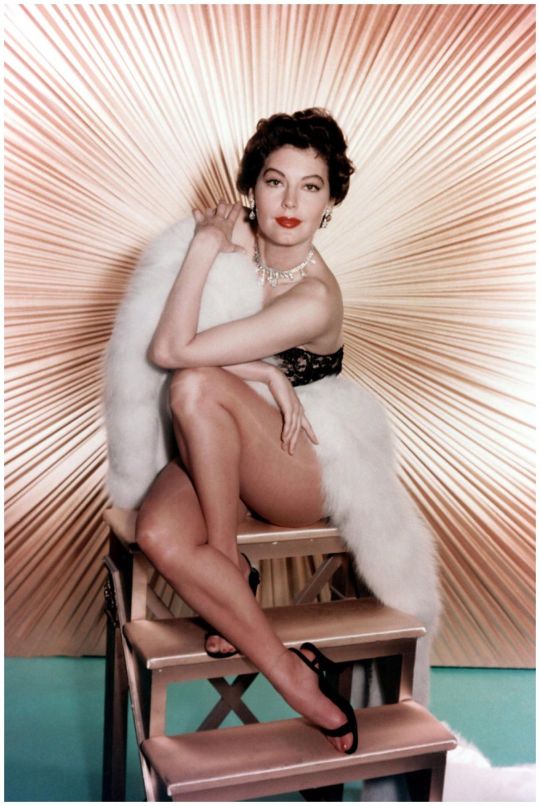
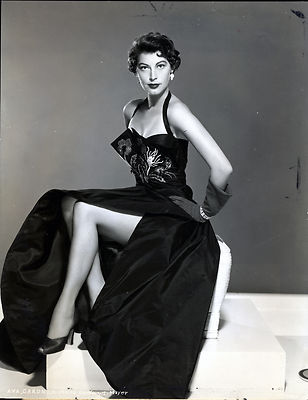
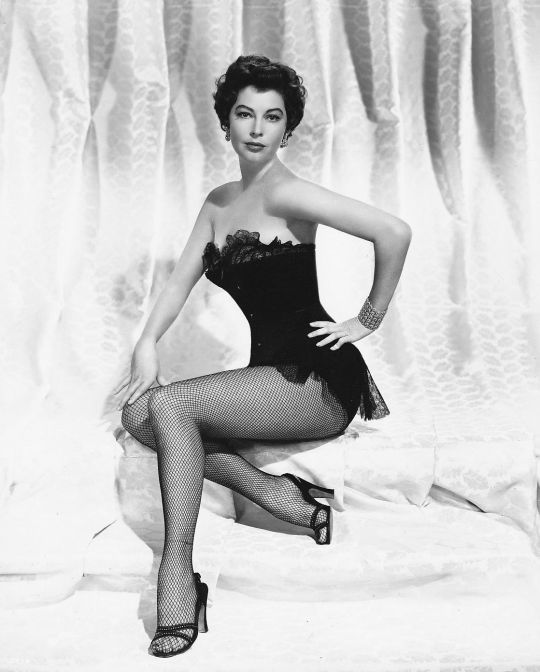
Films from the next decade or so include The Hucksters (1947), Show Boat (1951), The Snows of Kilimanjaro (1952), Lone Star (1952), Mogambo, nominated for a Best Actress Academy Award (1953), The Barefoot Contessa (1954), Bhowani Junction (1956), The Sun Also Rises (1957) and On the Beach (1959). Off-camera, she could be witty and pithy, as in her assessment of director John Ford, who directed Mogambo ("The meanest man on earth. Thoroughly evil. Adored him!"). In The Barefoot Contessa, she played the role of doomed beauty Maria Vargas, a fiercely independent woman who goes from Spanish dancer to international movie star with the help of a Hollywood director played by Humphrey Bogart, with tragic consequences. Gardner's decision to accept the role was influenced by her own lifelong habit of going barefoot. Gardner played the role of Guinevere in Knights of the Round Table (1953), with actor Robert Taylor as Sir Lancelot. Indicative of her sophistication, she portrayed a duchess, a baroness and other women of noble lineage in her films of the 1950s.
Gardner played the role of Soledad in The Angel Wore Red (1960) with Dirk Bogarde as the male lead. She was billed between Charlton Heston and David Niven for 55 Days at Peking (1963), which was set in China during the Boxer Rebellion in 1900. The following year, she played her last major leading role in the critically acclaimed The Night of the Iguana (1964), based upon a Tennessee Williams play, and starring Richard Burton as an atheist clergyman and Deborah Kerr as a gentle artist traveling with her aged poet grandfather. John Huston directed the movie in Puerto Vallarta, Mexico, insisting on making the film in black-and-white – a decision he later regretted because of the vivid colors of the flora. Gardner received billing below Burton, but above Kerr. She was nominated for a Golden Globe Award for Best Actress in a Motion Picture – Drama and BAFTA Award for Best Actress in a Leading Role for her performance.
25 notes
·
View notes
Text
I last saw my old professor Abduqadir Jalalidin at his Urumqi apartment in late 2016. Over home-pulled laghman noodles and a couple of bottles of Chinese liquor, we talked and laughed about everything from Uighur literature to American politics. Several years earlier, when I had defended my master’s thesis on Uighur poetry, Jalalidin, himself a famous poet, had sat across from me and asked hard questions. Now we were just friends.
It was a memorable evening, one I’ve thought about many times since learning in early 2018 that Jalalidin had been sent, along with more than a million other Uighurs, to China’s internment camps.
As with my other friends and colleagues who have disappeared into this vast, secretive gulag, months stretched into years with no word from Jalalidin. And then, late this summer, the silence broke. Even in the camps, I learned, my old professor had continued writing poetry. Other inmates had committed his new poems to memory and had managed to transmit one of them beyond the camp gates.
In this forgotten place I have no lover’s touch
Each night brings darker dreams, I have no amulet
My life is all I ask, I have no other thirst
These silent thoughts torment, I have no way to hope
Who I once was, what I’ve become, I cannot know
Who could I tell my heart’s desires, I cannot say
My love, the temper of the fates I cannot guess
I long to go to you, I have no strength to move
Through cracks and crevices I’ve watched the seasons change
For news of you I’ve looked in vain to buds and flowers
To the marrow of my bones I’ve ached to be with you
What road led here, why do I have no road back home
Jalalidin’s poem is powerful testimony to a continuing catastrophe in China’s Xinjiang Uighur Autonomous Region. Since 2017, the Chinese state has swept a growing proportion of its Uighur population, along with other Muslim minorities, into an expanding system of camps, prisons and forced labor facilities. A mass sterilization campaign has targeted Uighur women, and the discovery of a multi-ton shipment of human hair from the region, most likely originating from the camps, evokes humanity’s darkest hours.
But my professor’s poem is also testimony to Uighurs’ unique use of poetry as a means of communal survival. Against overwhelming state violence, one might imagine that poetry would offer little recourse. Yet for many Uighurs — including those who risked sharing Jalalidin’s poem — poetry has a power and importance inconceivable in the American context.
#current events#poetry#politics#chinese politics#oppression#censorship#resistance#imprisonment#uyghur genocide#china#xinjiang#uyghurs#abduqadir jalalidin
179 notes
·
View notes
Text
Ling's life before FMA started is pretty vague, but there's things we can assume based on China's influence on the creation of Xing. FMA takes place in the early 20th century, probably sround 1910s to 1930s. The country Xing was based on, China, was at that time a revolt by a group of revolutionaries against the Qing Dynasty. The imperial system was ended, and put in its place was the Republic of China.
However, FMA follows a history where the Dynasty continued. So, what exactly is the Imperial system?
Chinese society was split into five categories, or classes, which were Nobility and the "four occupations." The highest class was Shi, or the gentry, then the Nong, farmers, Gong, craftspeople, and Shang, the Merchants.
Farmers were the base of China's economy and viewed as vital to their country. They provided cotton, food, and silk, along with many other consumeable goods. A large portion of the food they harvested went to Landlords, local Nobles, or was given out to the empire itself. Farming communities produced goods needed by the government, and if not, they were conscripted for public projects.
As a result of the massive area and amount of people, direct rule from the Emperor was not possible. The Emperor relied on civil servants to carry out his orders, most of which were members of the gentry. What was important to this class was literacy, since the Chinese government basically ran on paperwork. Both the nobles and Shi did not perform manual labor but could become painters and poets.
Laws and punishments were harsh to maintain power for the upper classes. A crime could lead to a criminal's entire family being executed. Their society was based on Confucian Principles, so it was the people in power's duty to lead the people well. ("While people should obey their rulers, the rulers should work to benefit their people."). The family structure was meant to have each member treat all the others with a mutual respect for their contributions to the family.
That same ideal applied to the family, where male heads were supposed to "govern wisely," and the rest of the house should obey. Women were expected to be subservient, and there had been only one female empress. Noble women were often involved with power struggles, but they worked mostly out of sight.
Because of these values, the more powerful a man was, the more likely he was to have many concubines besides his wife.
(Now I can talk about one of my favorite guys....😼😼😼)
Ling was probably one of the many sons caused by the Emperor having many concubines. Since he was probably an imperial concubine's son, Ling most likely had a very isolated life where he was forever fighting for his father's approval. Noble, or gentry classes, are filled with much cutthroat, inner fighting, where Ling's half siblings almost absolutely had attempts made on his life by assassins or tried to destroy his reputation.
At first, Ling seems to be laid back and carefree, but he actually takes his position as a prince very seriously. He tells Mei Chang that when he becomes Emperor, he is going to reunite their families and protect them. Ling has prioritized Lan Fan's and Ed's lives over his own, despite Ed having a lower status than him and Lan Fan being his body guard.
He is absolutely prepared to die for his cause. For his whole life, he has been completely aware that any one of his many half siblings could take his place, undo all his progress, and send him back to nothing.
The drive that he has led him through the desert, making the long, grueling joirney to Amestris. Since the people of Amestris don't know of his social status, he is able to act like a normal kid his age for once and become friends with Ed.
If anything is wrong, please let me know !!! ( ゚ε゚;)
Sources:
https://history.state.gov/milestones/1899-1913/chinese-rev#:~:text=In%10October%20of%201911%2C%20a.and%20ending%20the%20imperial%20system
https://www.unm.edu/~toh/china/age-of-empire.html#:~text=Tye%20Structure%20of%20Empire.%2C%20and%20shang%20(merchants)
#ling yao#ling fma#fma 03#fmab#fma ling#xing fma#fullmetal alchemist brotherhood#fullmetal alchemist
21 notes
·
View notes
Text
Chinese Ethnic Minority Literature
I just finished taking an incredibly eye-opening class about Chinese ethnic minority literature. China has a thriving minority literature scene, and it's absolutely fascinating and full of interesting works, so I wanted to share some of the authors that I learned about this semester! This is, obviously, an incomplete list-- it's pretty heavily biased towards what we read about in class, and there's probably a lot I've missed!
For any authors with full works that have been translated into English, I've listed it under their names. Some other authors may also have poems or short stories published in translation online or in anthologies.
Hani 哈尼
Mo Du 莫獨 (b. 1963) - poems
Hui 回族
Huo Da 霍達 (b. 1945) - novels
The Jade King: History of a Chinese Muslim Family (1992)
Zhang Chengzhi 張承志 (b. 1948) -novels, short stories
The Black Steed (1990)
Korean 朝鮮族
Jin Renshun 金仁順 (b. 1970) - novels, short stories
Jin Wenxue 金文學 (b. 1962) - novels
Manchu 滿族
Duanmu Hongliang 端木蕻良 (1912-1996)
Lao She 老舍 (1899-1966) - novels, short stories, plays
Rickshaw Boy (1945, 2010)
Miao (Hmong) 苗族
He Xiaozhu 何小竹 (b. 1963) - poems, novels
Shen Congwen* 沈從文 (1902-1988) - novels, short stories
Imperfect Paradise (1995)
Border Town (2009)
Mongolian 蒙古族
Altai 阿爾泰 (b. 1949) - poems
Bao Liying 包麗英 (b. 1968) - novels
Baoyinhexige 寶音賀希格 - poems
Chen Ganglong 陳崗龍 (b. 1970) - poems
Guo Xuebo 郭雪波 (b. 1948) - novels, short stories
The Desert Wolf (1996)
Malaqinfu 瑪拉沁夫 (b. 1930)- novels
Naxi 納西族
Sha Li 沙蠡 (1953-2008) - novels
Yang Zhengwen 楊正文 (b. 1943) - novels
Qiang 羌族
Qiang Renliu 羌人六 (b. 1987) - poems
Yangzi/Yang Guoqing 羊子/楊國慶 - poems
Tibetan 藏族
Alai 阿來 (b. 1959) - novels, short stories
Red Poppies (2003)
The Song of King Gesar (2013)
Tashi Dawa 扎西達娃 (b. 1959) - novels, short stories
A Soul in Bondage: Stories from Tibet (1992)
Yangdron 央珍 (b. 1963) - novels
Uyghur 維吾爾族
Alat Asem 阿拉提·阿斯木 (b. 1958) - novels, short stories
Confessions of a Jade Lord (2019)
Wa/Va 佤族
Burao Yilu 布饒依露 - poems
Yi 彝族
Aku Wuwu 阿庫烏霧 (b. 1964) - poems, essays
Tiger Traces: Selected Nuosu and Chinese Poetry of Aku Wuwu (2006)
Coyote Traces: Aku Wuwu's Poetic Sojourn in America (2015)
Bamo Qubumo 巴莫曲佈嫫 (b. 1964) - poems, academic articles
Eni Mushasijia 俄尼·牧莎斯加 (b. 1970) - poems
Jidi Majia 吉狄馬加 (b. 1961) - poems
I, Snow Leopard (2016)
Words from the Fire: Poems by Jidi Majia (2018)
Jimu Langge 吉木狼格 (b. 1963) - poems
Lu Juan 魯娟 (b. 1982) - poems
Ma Deqing 馬德清 (1952-2013) - poems, novels
Na Zhangyuan 納張元 (b. 1966) - essays
*Shen has both Miao and Tujia ancestry, as well as Han. However, I see him listed most frequently as Miao.
More Resources on Ethnic Minority Literature:
Altaic Storytelling: The blog of translator Bruce Humes (translator of Confessions of a Jade Lord, among other works). Has a fairly broad focus, but he's written a lot about ethnic minorities.
Chinese Academy of Social Sciences Institute of Ethnic Literature: China has a thriving infrastructure to support the writing of and research into ethnic minority literature, and this is one of the larger institutions. I believe their research focuses more on oral traditions, but they have some information about contemporary writers as well.
Chinese Women Writers on the Environment: An anthology of eco-fiction by female ethnic minority writers.
Golden Horse Award 駿馬獎: This is an annual award for ethnic minority literature. The wikipedia link lists all the previous winners.
The Leeds Center for New Chinese Writing: Again not specific to ethnic minorities, but features several ethnic minority authors.
Paper Republic: This organization is devoted to translated Chinese writing and isn't specific to ethnic minority literature but has information about and translations of some of the writers on this list.
Poetry International: This website isn't specific to ethnic minorities or even to China, but many of the poets on this list have pages there with a few poems translated into English.
#chinese#mandarin chinese#langblr#studyblr#books#my posts#literature#ooh boy this is a long one!#i'll reblog a version with my own commentary in a few
362 notes
·
View notes
Text

Plates from The Dinner Party (1974-1979), with raised central motifs based on vulval, floral, and butterfly forms, and rendered in styles appropriate to the individual women being honoured, by American feminist artist, art educator, and writer, Judy Chicago, born in 1939.
Judy Chicago is known for her large collaborative art installation pieces focusing on images of birth and creation, which examine the role of women in history and culture.
Complete work (image in comments with a closeup) ceramic, porcelain, textile, 14.63 x 14.63 m, 47' 3" x 47' 3" approx
Collection of the Brooklyn Museum, New York
The Dinner Party, an important icon of 1970s feminist art and a milestone in twentieth-century art, comprises a massive ceremonial banquet, arranged on a triangular table, symbol of equality, with a total of thirty-nine place settings, each commemorating an important woman from history. The settings consist of embroidered runners, gold chalices and utensils, and china-painted porcelain plates with three-dimensional designs representing individual women, resembling flowers, butterflies, and female genitalia. The names of another 999 women are inscribed in gold on the white tile floor below the triangular table.
The individual plates pictured are:
Top, left to right:
Primordial Goddess plate
Virginia Woolf plate
Theodora plate
Bottom, left to right:
Saint Bridget plate
Hatshepsut plate
Boadaceia plate
China paint on porcelain, diameter 35 cm, 14 in approx
* * * *
“When, however, one reads of a witch being ducked, of a woman possessed by devils, of a wise woman selling herbs, or even of a very remarkable man who had a mother, then I think we are on the track of a lost novelist, a suppressed poet, of some mute and inglorious Jane Austen, some Emily Bronte who dashed her brains out on the moor or mopped and mowed about the highways crazed with the torture that her gift had put her to. Indeed, I would venture to guess that Anon, who wrote so many poems without signing them, was often a woman.”
― Virginia Woolf, A Room of One’s Own
20 notes
·
View notes
Text
“The work of many gifted women known to history by name is a salutary reminder that, as the majority of the human race, women have always commanded over half of the sum total of human intelligence and creativity. From the poet Sappho, who in the sixth century B.C. was the first to use the lyric to write subjectively and explore the range of female experience, to the Chinese polymath Pan Chao (Ban Zhao), who flourished around A.D. 100 as historian, poet, astronomer, mathematician and educationalist, the range is startling. In every field, women too numerous to list were involved in developing knowledge, and contributing to the welfare of their societies as they did so: the Roman Fabiola established a hospital where she worked both as nurse and doctor, becoming the first known woman surgeon before she died in A.D. 399.37 In various fields, too, women emerged not simply as respected authorities, but as the founding mothers of later tradition: Cleopatra, "the alchemist of Alexandria," an early chemist and scholar, was the author of a classic text Chrysopeia (Gold-making), which was still in use in Europe in the Middle Ages, while the Chinese artist Wei Fu-Jen, working like Cleopatra in the third century A.D., is still honored today as China's greatest calligrapher and founder of the whol school of the art of writing.”
-Rosalind Miles; Who Cooked The Last Supper?; The Women’s History of the World
#who cooked the last supper#herstory#patriarchy#radblr#radfem#radical feminism#radical feminist safe#radical feminists do interact#radical feminists do touch#radical feminists please touch#feminism#feminist literature#radical feminists please interact#radical feminist community#radical feminist literature#radical feminst#radical feminist theory#womens history
16 notes
·
View notes
Text
Queer books, day 7/30

Okay, I have a big weakness for Space Opera, even though once you try to think economically about it, you can see that a giant space empire will never work. Like there will never be one planet that is dedicated to growing tea and has no other exports and requires to be hooked into some giant trade network in order to survive. But if there were such an empire, this book.
Ironically, this book is perilously close to my MA work, and also I think Arkady Martine's PhD work, from looking at her biography. It's really about what happens when you are trying to translate, and how impossible that can be. Not just translating words from one language to another, but translating culture. Mahit is sent as ambassador from a small independent station to the heart of the local giant empire, Teixcalaan. To function as an ambassador means you have to make your culture understandable (and palatable) to another group in order to curry favor and push your political agenda. So how does someone who grew up in a place where space is at a premium, births monitored because of population controls, food is vegan because of the problems of raising animals, etc., explain all of that to someone who's always lived not just on a planet but in the wealthiest part of the wealthiest planet? If you live in Londinium, how do you explain your life to someone who lives in Rome? Or if you're living in Manhattan right now, how can you understand the life of someone in rural China? It's difficult. Not saying the words but actually producing the understanding.
This book does a lot of things really well: political intrigue that is actually interesting, poems that are actually pretty good (as a poet, I often have feelings about poems written by novelists in novels), queerness (Mahit's predecessor, Yskandr, who still exists as an implant inside her head, was bi, and Mahit herself is interested in women). The images are gorgeous, the writing is terrific. My one critique is that, when one character mentions that the child she and Mahit are discussing was her own child "of her own body," Mahit is privately horrified--apparently women on her station aren't allowed to actually carry pregnancies, because they could ruin their bodies that way. My feelings about this as a person who has been pregnant aside, I do not for a moment buy that a culture that indulges in recreational brain surgery can't fix someone's pelvic floor. I feel like this is a relatively petty quibble, though.
Key quote:
The coffee was shockingly, blisteringly good: hot but not hot enough to scald, the paper cup warm in Mahit's palms. It had a rich, earthy taste that wasn't anything like the instant coffee on Lsel, and in some better moment Mahit thought she'd really like to drink it slowly enough to think about all the different qualities of the flavor-
‹There are varieties,> Yskandr said, ‹and they all taste different. It's fantastic. But the important part is the caffeine.>
He was right. Even in the few minutes Mahit had been drinking the coffee, she felt more present, more acute, conscious of a faint thrumming in her skin.
I took a class with Maria Headley (I am an acolyte) where she talked about rejecting mid-century minimalism and writing beautiful, maximalist novels. This is an excellent example of that. Write a novel and put everything in. Every fucking thing. Make it beautiful. More. More.
10/10. Go read them.
#pride#lgbtq fiction#lgbtq books#arkady martine#a memory called empire#a desolation called peace#teixcalaan#book review#queer books#thirty days of books
32 notes
·
View notes
Text
I can't not make a Clone High au

Marinette: Clone of a peasant turned royal tailor from ancient China who created fabulous garments for royalty and received praise for her work until her untimely demise when the jealous wife of the emperor poisoned her food
Adrien: Clone of a former beloved Parisian mayor from the 70s who won the hearts of all with his charisma, good looks, and natural charm… Then he got assassinated after he signed a bill to allow gay couples to adopt
Nino: Clone of a famous Moroccan director who gained recognition from his first short film which he shot in his home town. He made a name for himself, traveled, and won many awards, but then died in the 70s after someone drugged him… Because it was the 70s
Alya: Clone of a young runaway slave from Martinique in the late 1790s. She taught herself to read and wrote several books detailing the effects of Code Noir on her home. She was soon found and killed just five years before slavery was abolished. Her books were published decades later and shed some light on Martinique’s struggle
Nathaniel: Clone of a Jewish man from the 1930s who escaped the concentration camp when he was twenty and went into hiding, boarded a ship, and made it to America. He made his living as an artist, and was free to express his religion and tell his story when the war ended up until he turned 68, and died of a heart attack
Alix: Clone of a pro skater. Being female and Arab made her the target of a few choice words from competitors and spectators, but she rubbed her wins in their faces until her tragic “accident” at one event in 1978. Some jackass tampered with her wheels, and Alix landed in a horrible way. Fortunately, the asshole was arrested
Kim: Clone of a champion Olympic swimmer from the 50s. He took home gold twice and was ready to win his third gold medal. Right as he got in the water, shots rang out. A bullet hit his leg, and he sank to the bottom of the pool. (A jealous competitor resorted to drastic measures)
Max: Clone of a teenage genius from the early 70s. People thought he’d change the world with his brilliant mind. He even won a Nobel prize. The world probably would have been improved had it not been for the tragic lab fire
Juleka: Clone of a Romanian noble from the 1600s accused of kidnapping and draining young women of their blood to retain her youth. One night, the villagers stormed her manor and set fire to everything, even going so far as to lock her inside
Rose: Clone of a celebrated singer from the early 50s known for her pink rockabilly style. She died in her sleep when she was 83, and by that time, she had written over sixty songs
Ivan: Clone of a famed poet/song writer. He lived a pretty peaceful life, never got in any fights, attended protests organized by marginalized groups, and even wrote a book. He died peacefully in his sleep when he was 100
Mylène: Clone of an well known actress/activist who was protesting companies dumping lead into urban neighborhoods. Her words got their attention, but instead of being decent human beings, they poisoned her as a threat, but ended up killing her in 1978. To this day, those ass-bitches got away with it
Sabrina: Clone of a secretary from the 50s who had just about enough of her male colleagues treating her like less than the gum on the bottom of their shoes. She got up in the dead of night to paint their cars pink, filled their cars with women’s undergarments, and spiked their coffee with vodka. The cop was gonna let her off easy, but she demanded to be arrested… She shouldn’t have said that, because on their way to the prison, the cop car got t-boned bad
Chloé: Clone of a young aristocratic woman who was accused of killing her parents in cold blood in the 1800s. While she was acquitted of the charges, people still believed her to be a murderer, and she lived with that title all the way to her death
Lila: Clone of a scorned Italian woman from the late 1800s who sold out her village to a mob boss to live a life of luxury… And she did for about five weeks before one man from her village sought revenge for what the mob did to his family and shot many, including her
(Next Gen Clones)
Marc: Clone of a French writer and playwright from the 1800s whose stories mainly consisted of queer protagonists… Then he got arrested because being gay gets you in trouble in Europe during those times. He lived to be 102, and made out with so many guys in secret
Denise: Clone of a young enby from the 1960s who was part of Operation Pedro Pan to help Cuban youths escape from Castro’s regime when they were seventeen. They made it to America, faced some bigots, wrote two books detailing their life from Cuba to America, and advocated for the rights of Cuban citizens until they got sick and died in 1999
Simon: Clone of an Irish Catholic from the 1600s who hid with his family during Oliver Cromwell’s invasion and attack on the Catholics. They were going to escape together as a family, but his asshole parents left him to be killed at the hands of Cromwell himself. Prior to that, he wrote in a journal explaining the unfair treatment toward the Irish in great detail and it was soon published upon discovery
Ismael: Clone of a famed escape artist from the early 1900s. He performed all sorts of death-defying tricks until he performed one he didn’t survive- The escape from the water-filled tank trip… He forgot to hide the key on his person
Reshma: Clone of an Indian-American woman who lived a well off and made a name for herself as a fashion mogul. She used her influence to speak out against injustice against queer people and bring attention to current events in India. She died in her sleep when she was 70 in 1992
Jean: Clone of a beloved actor from the 1800s, most known for his “satirical” roles as women when really, he just likes wearing dresses, but they don’t gotta know that. However, someone found him making out with another man and killed him in his dressing room
Lacey: Clone of a famed spelunker. She has several museum wings named after her due to her discoveries, and became moderately wealthy. She continued exploring caves until her 50s when she slipped and fell into a crevice in 1978. The only thing that remained of her was a video camera with her final words
Aurore: Clone of an investigative journalist from the early 1900s reporting the abuse of conversion therapy victims. She was set to publish her story and expose the people behind the practice until she was photographed kissing a woman and dragged to a facility. Fortunately, one of her most trusted associates published her story and she was freed due to public backlash and threats against the facility. She died when she was 79
Mireille: Clone of a boxer from the 1920s who won many competitions, stole the hearts of a few women, and was on her way to greatness until a party got just a little too crazy, and she “fell” of the balcony after an encounter with an ex
Cosette: Clone of a Civil Rights activist from the 1950s who has been arrested several times for protesting. They publicly spoke out against the blatant racism in the country, and because of this, they were a person of interest for the government. She would’ve exposed the cameras and microphones she found in her home, but got into an “accident”
Zoé: Clone of a New York heiress from the early 1900s who ran off to join a rebel group that provided resources for the poor… By stealing from the rich. She hasn’t been caught once and eventually eloped with a woman five years before her death in 1997
Clone High is in Paris, secretly being run as an elaborate military experiment orchestrated by a government office called the Secret Board of Shadowy Figures
In 2003, the school is entirely populated by the clones of famous historical figures that were created and raised with the intent of having their various strengths and abilities harnessed by the military for a project called, Operation: Mighty Eagle. And one day, they will have them take over the world
One night, during a dance where everyone was in attendance, the teachers flash froze the clones to keep them out of the board’s evil hands, and the board eventually forgot about them
In secret, but they made new clones in 2007, and raised them during the twenty years that they were frozen, making the clones all roughly the same age after the Gen1 clones were unfrozen to resume Operation: Mighty Eagle
Due to being frozen for twenty years, the G1 clones are so far behind, have missed many important events, and have to learn what they can’t say that was okay in the 90s, but wrong to say now
Chloé is very put off when she realizes she’s no longer popular by today’s standards and instead, Nathaniel, Max, and Juleka are
Mme. Bustier: So, how’d the kids take it when you told them they’ve been frozen for twenty years?
Mme. Mendeleiv: Oh, I think they handled it very well.
*Earlier*
Mme. Mendeleiv: For anyone who thinks it is 2003… You are wrong!
Clone Kids: … *Freaking out*
Nino: *Holding up a cellphone* WHAT IS THIS?! *Points to a laptop* WHAT IS THAT?! *Points to Kim’s sneakers* WHAT ARE THOOOOOSE?!
Mme. Mendeleiv: It’s not 2015.
Marinette: This isn’t real! I’m dreaming!
Alya: The world is so warm!
Adrien: Guys! Guys!… Blockbuster is gone!
Rose: NOOOOO!!
Chloé: WHERE IS DESTINY’S CHILD?!
Max: There was a brother in office?!
Nathaniel: I CAN’T HANDLE THESE SUDDEN CHANGES!
*Later*
Mme. Mendeleiv: … Yeah. They’re fine.
—
M. Damocles: Here to help get you all acquainted with the future is the most popular clone and the the most conventionally attractive by today’s standards in the school.
Chloé: Finally!
M. Damocles: Chloé… Please move out of the way so everyone can see Marc Anciel, your class president!
Marc:

Chloé: Who?!
Marinette: He’s what?!
Kim: He’s a guy?
Nathaniel: I don’t care what he is, but I am smitten!
—
Alya: *Holding up a cell phone* Okay, and this is a…
Aurore: Cell phone.
Alya: How is it different from my telephone?
Aurore: For one, it’s lighter, and you can take pictures of yourself.
Alya: … No… Way!
—
Adrien: You know who's gonna get canceled? Kim. You should have heard him back in the day. That guy's always saying stupid things.
Kim: I like men and woman of any shape or size!
Aurore: Wow, a bi Himbo.
Kim: *Laughs* No, I’m not a biathlete.
Jean: Refreshing honesty.
Mireille: So uninhibited.
—
Ivan: How can you stay so calm when the world is so warm, animals are dying, children are dying, everyone is dying, and so many wars are happening now?! You see it all on your weird telephone!
Cosette: Eh, I just channel all my anxiety into something meaningful. Like traumatizing white parents with lessons on how removing critical race theory from history books will mess their kids up.
—
Nino: Ismael, what gives you the confidence to be so good at skateboarding, and magic, and chilling?
Ismael: I don't know, Nino. Guess it's just hard work and practice.
Nino: Hard work and practice? Sounds like a fool's errand; You're stupid, Ismael. We tried practicing, but we failed.
Isnael: Did y'all try practicing a second time?
Nino: Oh, let me guess. "'Cause practice makes perfect."
Ismael: No. There's no such thing as perfect. Practice makes progress.
Nino: That's a dumb saying. You're dumb. This is dumb. Everything's dumb. But, okay, we'll try.
21 notes
·
View notes
Text
Why wet your pillow with secret tears?
Why hide your heartbreak in the flowers?
from “Advice to a Neighbor Girl” by Yü Hsüan-chi (tr. Kenneth Rexroth and Ling Chung), in Women Poets of China
0 notes
Text
Since the abatement of censorship, masculine hostility (psychological or physical) in specifically sexual contexts has become far more apparent. Yet as masculine hostility has been fairly continuous, one deals here probably less with a matter of increase than with a new frankness in expressing hostility in specifically sexual contexts. It is a matter of release and freedom to express what was once forbidden expression outside of pornography or other "underground" productions, such as those of De Sade. As one recalls both the euphemism and the idealism of descriptions of coitus in the Romantic poets (Keats's Eve of St. Agnes), or the Victorian novelists (Hardy, for example) and contrasts it with Miller or William Burroughs, one has an idea of how contemporary literature has absorbed not only the truthful explicitness of pornography, but its anti-social character as well. Since this tendency to hurt or insult has been given free expression, it has become far easier to assess sexual antagonism in the male.
The history of patriarchy presents a variety of cruelties and barbarities: the suttee execution in India, the crippling deformity of footbinding in China, the lifelong ignominy of the veil in Islam, or the widespread persecution of sequestration, the gynacium, and purdah. Phenomenon such as clitoroidectomy, clitoral incision, the sale and enslavement of women under one guise or another, involuntary and child marriages, concubinage and prostitution, still take place—the first in Africa, the latter in the Near and Far East, the last generally. The rationale which accompanies that imposition of male authority euphemistically referred to as "the battle of the sexes" bears a certain resemblance to the formulas of nations at war, where any heinousness is justified on the grounds that the enemy is either an inferior species or really not human at all. The patriarchal mentality has concocted a whole series of rationales about women which accomplish this purpose tolerably well. And these traditional beliefs still invade our consciousness and affect our thinking to an extent few of us would be willing to admit.
-Kate Millett, Sexual Politics
#kate millett#male behavior#male violence#female oppression#patriarchy#males are incompatible with health
8 notes
·
View notes
Text
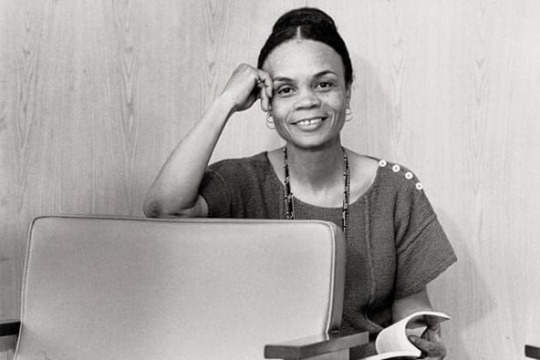

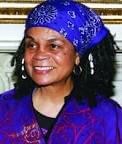


“Sonia Sanchez was born Wilsonia Benita Driver in Birmingham, Alabama. After her mother’s death in 1935 she lived with her grandmother. Her grandmother taught her to read at age four and write at age six. When her grandmother passed away in 1943, she moved to Harlem, New York where she stayed with her father Wilson Driver.
Driver attended Hunter College in New York City where she took creative writing courses although she graduated with a B.A. in Political Science in 1955. Continuing her education at New York University, Driver focused on the study of poetry. She also married and divorced Puerto Rican immigrant Albert Sanchez, although she retained his surname. She later married poet Etheridge Knight and together they had three children. They would later divorce.
In 1965 Sanchez taught at San Francisco State University. The course she offered at San Francisco State in 1966 on the literature of African Americans is generally considered the first of its kind taught at a predominately white university.
Sonia Sanchez released her first collection of poetry in 1969 entitled Homecoming. Her poetry was described at experimental and innovative; Sanchez was the first to blend the musical elements of the blues with the haiku and tanka poetry styles. She tackled many genres of literary art such as writing children’s books, and plays. Sanchez is most famous for her Spoken Word poetry books. She was awarded the American Book Award in 1985 for one of her best-known books, Home girls and Hand grenades.
Sanchez was a major influence in the Black Arts and Civil Rights Movements of the 1960s. She was an active member in the Congress of Racial Equality (CORE) as well as the Nation of Islam. She was inspired when she met Malcolm X and used his vernacular in some of her poems. She left the Nation of Islam after three years of affiliation in protest of their mistreatment of women. She continues to advocate for the rights of oppressed women and minority groups.
Sanchez has received countless awards for her work including the P.E.N. Writing Award (1969), the National Academy of Arts Award (1978), and the National Education Association Award (1977-1988). She has guest lectured in over 500 colleges and universities. Her poetry has been heard worldwide in Africa, Australia, Canada, the Caribbean Islands, China, Cuba, Europe, and Nicaragua. Sanchez’s last faculty appointment was at Temple University in Philadelphia where she was the first Presidential Fellow at that institution and the first to hold the Laura Carnell Chair. Sanchez taught courses in English and Women’s Studies until her retirement in 1999.”
Ms. Sanchez now resides in Philadelphia, Pennsylvania.
4 notes
·
View notes
Text


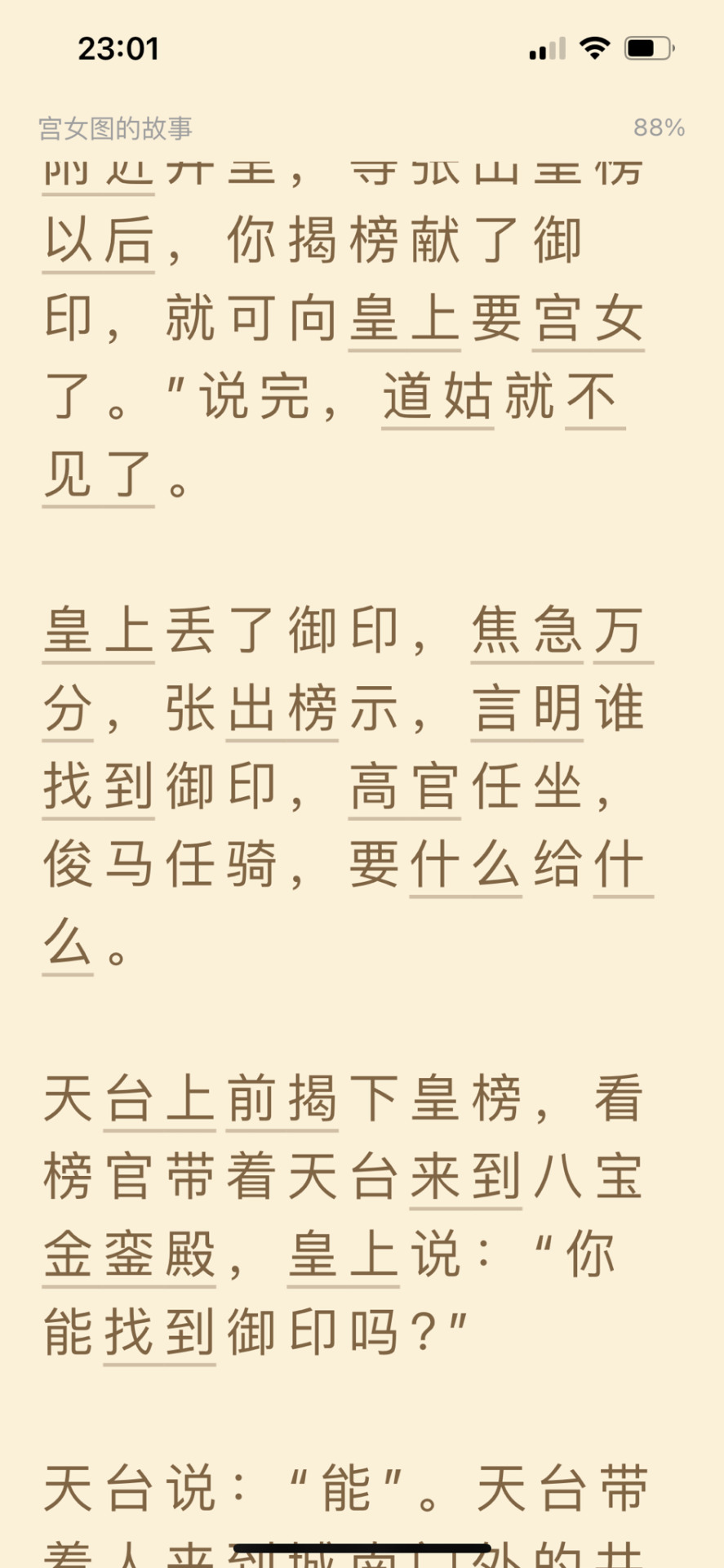
2023.05.19 | day 11/100 days of productivity
pink blossoms | the orchid boat: women poets of china
completed today:
- finally got around to starting with the heavenly path method—very happy about this! i always have a hard time figuring out a plan by myself, and the guide has a lot of resources. i’ve downloaded readibu and bookmarked a few pages i think will be useful to me.
- read more short pieces—i think making it a part of my daily schedule was a good idea; i can already see improvements in my reading, both in speed and vocabulary retention.
- did a quick exercise from my kurmanji textbook—i feel much more prepared now than when i was first using it a while back, haha
to do:
- reading reading, reading!! i’m aiming to read at least 3k words worth of chinese media every day by the time classes start up again.
- familiarise myself with the thai alphabet—this is a more long term goal, since i know it’ll take a while, but darn it, i want to get it down!
#study aesthetic#study inspiration#studyspo#studyblr#indigostudies#100 days of productivity#challenge participation#indigo ink
20 notes
·
View notes
Video
[Hanfu · 漢服]China Tang Dynasty Women's Fashion-Shangguan Wan'er(Wu Zetian period)
【Tang Dynasty Makeup Step】
STEP 1: Apply Powder
STEP 2: Put On Rouge Cheek
STEP 3: Draw Eyebrows
STEP 4: Apply Red lip Grease
STEP 5: Put On Huadian(花钿), MianYe (面靥) etc.
--------------------
During the time of Shangguan Waner (上官婉儿) , it was the heyday of feminism in the Tang Dynasty. At this time, women were also started make their body shape from slender to plump. Long skirts and flat collars became the fashion at that time, and high buns hairstyle and golden hairpins were all the rage at that time.
--------------------
【History About Shangguan Wan'er (上官婉儿) 】
Shangguan Wan'er (上官婉儿)was a famous female poet and female official during the Wu Zetian period. When she was young, her grandfather Shangguanyi was convicted and murdered, and then she accompanied his mother Zheng to the inner court as a maid.
She is smart and good at writing, and has won the trust of Wu Zetian. She has been in charge of the palace system for many years.
Most of the ministers' memorials are decided by her, and she is known as the "women prime minister". During Tang Zhongzong's time, she was named Zhaorong (昭容:title of concubine) and had a prominent position in the political and literary.
After Zhongzong's restoration, Shangguan Wan'er once presided over Fengya“风雅”(Refers to cultural activities related to poetry), and commented on the world's poetry and prose on behalf of the imperial court. At one time, many Ci ministers(Refers to a learned and knowledgeable minister who acts as an advisor to the emperor and participates in politics) gathered in front of her house, and "Full Tang Poems《全唐诗》" included thirty-two of her posthumous poems.
In 710 AD, King Linzi : Li Longji launched a coup d'état, and Shangguan Wan'er, Empress Wei and Princess Anle were killed at the same time.
In 710-712 AD, she was re-canonization as Zhaorong, posthumously named Huiwen(惠文), and was buried in Hongduyuan, Maodao Township, Xianyang County, Yongzhou.
--------------------
Recreation Work :@Niki-镜子
Model: @-是非娘娘-
Hanfu: @春谷山房 (Provided by @云云的黑眼圈儿 )
Hair Accessories: 郑雅 @静尘轩主-剪灯笑语
Photo: 刘芳
Shooting venue: @这是一枚小方方
Weibo:https://weibo.com/1730238267/LwMFC6mXa
--------------------
#chinese hanfu#tang dynasty#early tang dynasty#hanfu#hanfu_challenge#hanfu fashion#hanfu history#hanfu accessories#chinese#chinese history#china history#chinese traditional clothing#chinese art#chinese culture#chinese clothing#chinese fashion#chineseart#chinesestyle#china#historical costuming#historical clothing#historical fashion#historical hairstyles#historical makeup#Hanfu From China#漢服#汉服#中華風#shangguan wan'er#上官婉儿
151 notes
·
View notes